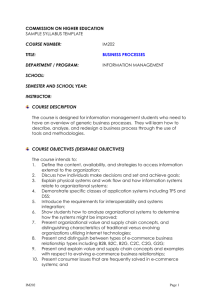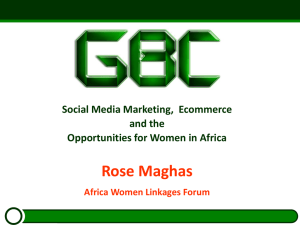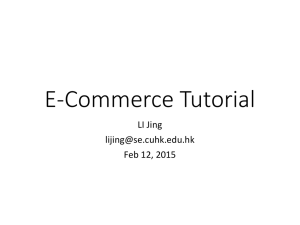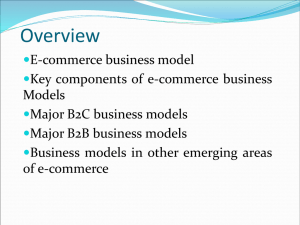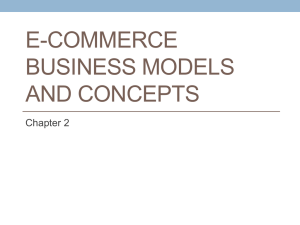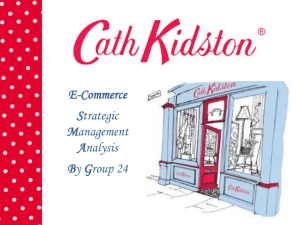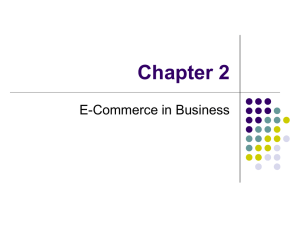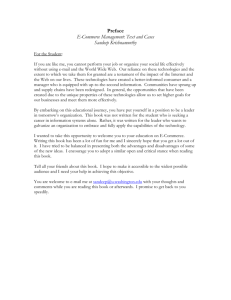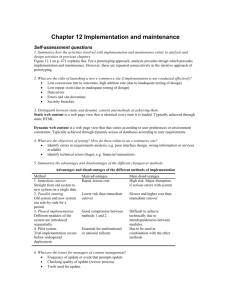E-Commerce Basics Test/Quiz - True/False & Multiple Choice
advertisement
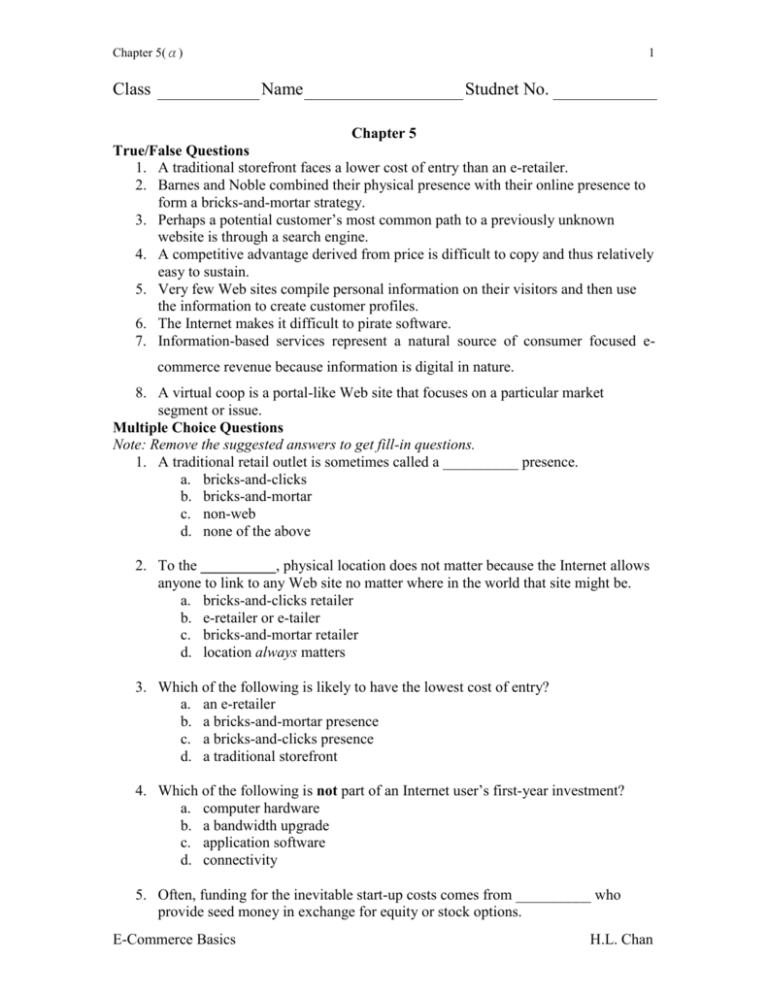
Chapter 5(α) Class 1 Name Studnet No. Chapter 5 True/False Questions 1. A traditional storefront faces a lower cost of entry than an e-retailer. 2. Barnes and Noble combined their physical presence with their online presence to form a bricks-and-mortar strategy. 3. Perhaps a potential customer’s most common path to a previously unknown website is through a search engine. 4. A competitive advantage derived from price is difficult to copy and thus relatively easy to sustain. 5. Very few Web sites compile personal information on their visitors and then use the information to create customer profiles. 6. The Internet makes it difficult to pirate software. 7. Information-based services represent a natural source of consumer focused ecommerce revenue because information is digital in nature. 8. A virtual coop is a portal-like Web site that focuses on a particular market segment or issue. Multiple Choice Questions Note: Remove the suggested answers to get fill-in questions. 1. A traditional retail outlet is sometimes called a __________ presence. a. bricks-and-clicks b. bricks-and-mortar c. non-web d. none of the above 2. To the __________, physical location does not matter because the Internet allows anyone to link to any Web site no matter where in the world that site might be. a. bricks-and-clicks retailer b. e-retailer or e-tailer c. bricks-and-mortar retailer d. location always matters 3. Which of the following is likely to have the lowest cost of entry? a. an e-retailer b. a bricks-and-mortar presence c. a bricks-and-clicks presence d. a traditional storefront 4. Which of the following is not part of an Internet user’s first-year investment? a. computer hardware b. a bandwidth upgrade c. application software d. connectivity 5. Often, funding for the inevitable start-up costs comes from __________ who provide seed money in exchange for equity or stock options. E-Commerce Basics H.L. Chan Chapter 5(α) a. b. c. d. 2 angels venture capitalists a and/or b neither a nor b 6. Which of the following is not an effective B2C hook? a. significant numbers of graphic images on a Web site b. a unique product c. price leadership d. convenience 7. The ultimate objective of a company’s website is to add enough value to achieve __________, a state in which the customer has a vested interest to stay with the company because switching to a competitor entails significant switching costs. a. integration b. interconnection c. lock-in d. a dependency relationship 8. A competitive advantage derived from __________ is difficult to copy and thus relatively easy to sustain. a. a unique product b. price c. a unique service d. improved value chain and/or supply chain efficiency 9. Consumer interaction, the essence of consumer focused (B2C) e-commerce, is the front end to __________. a. the value chain (intra-business e-commerce) b. the supply chain (B2B e-commerce) c. neither 10. Before the dot-com bubble burst, a proposed B2C venture that could legitimately claim __________ had relatively little trouble getting startup funding. a. price leadership b. convenience c. first mover status d. all of the above 11. To the __________, physical location does not matter because the Internet allows anyone to link to any Web site no matter where in the world that site might be. a. bricks-and-clicks retailer b. e-retailer or e-tailer c. bricks-and-mortar retailer d. location always matters 12. Which of the following is not part of an Internet user’s first-year investment? a. computer hardware b. a bandwidth upgrade c. application software d. connectivity E-Commerce Basics H.L. Chan Chapter 5(α) 3 Answers T/F 1.(F) 2.(F) 3.(T) 4.(F) 5.(F) 6.(F) 7.(T) 8.(F) MC 1.(B) 2.(B) 3.(A) 4.(B) 5.(C) 6.(D) 7.(C) 8.(D) 9.(D) 10.(C) 11.(B) 12.(B) E-Commerce Basics H.L. Chan
